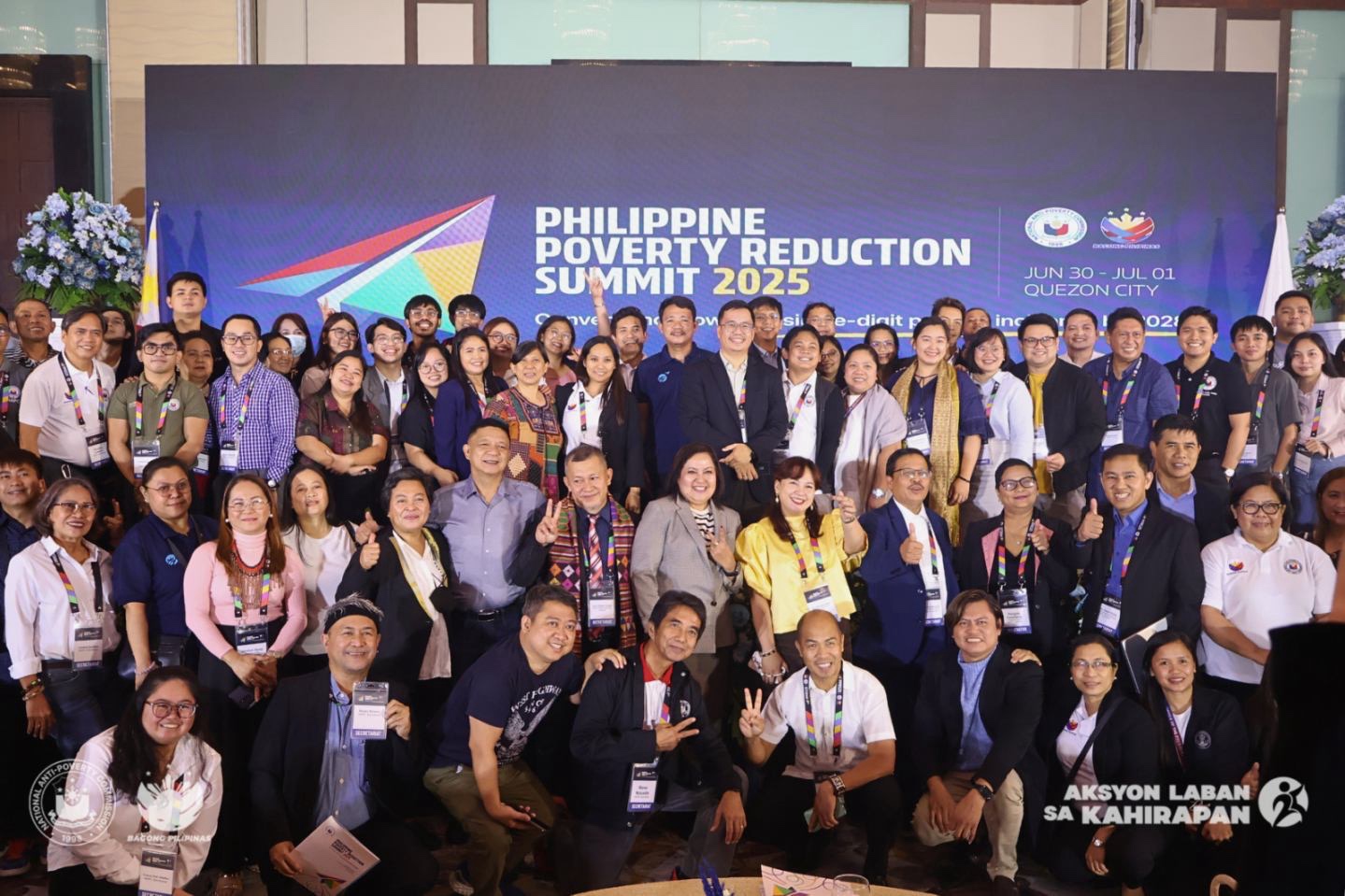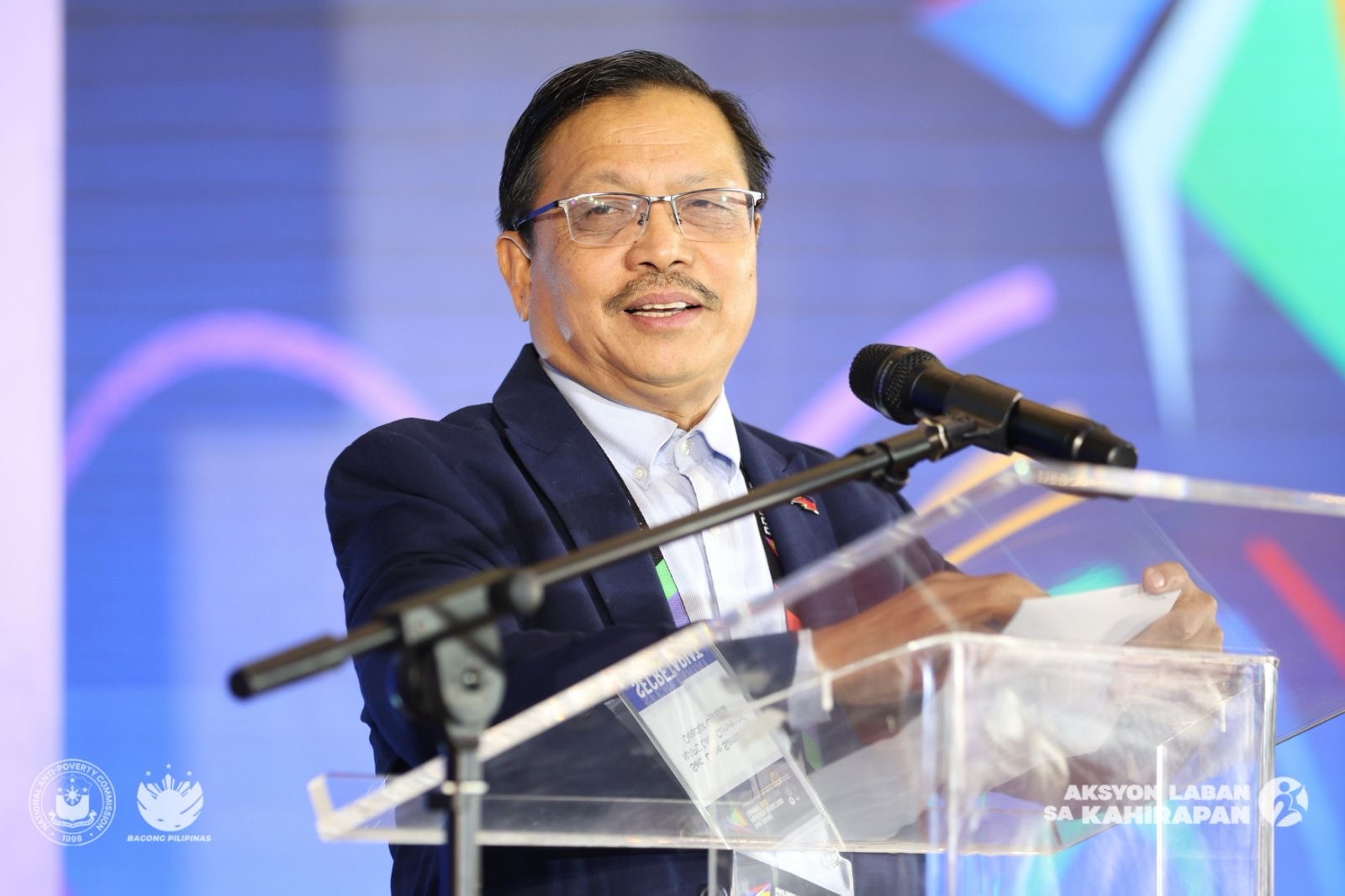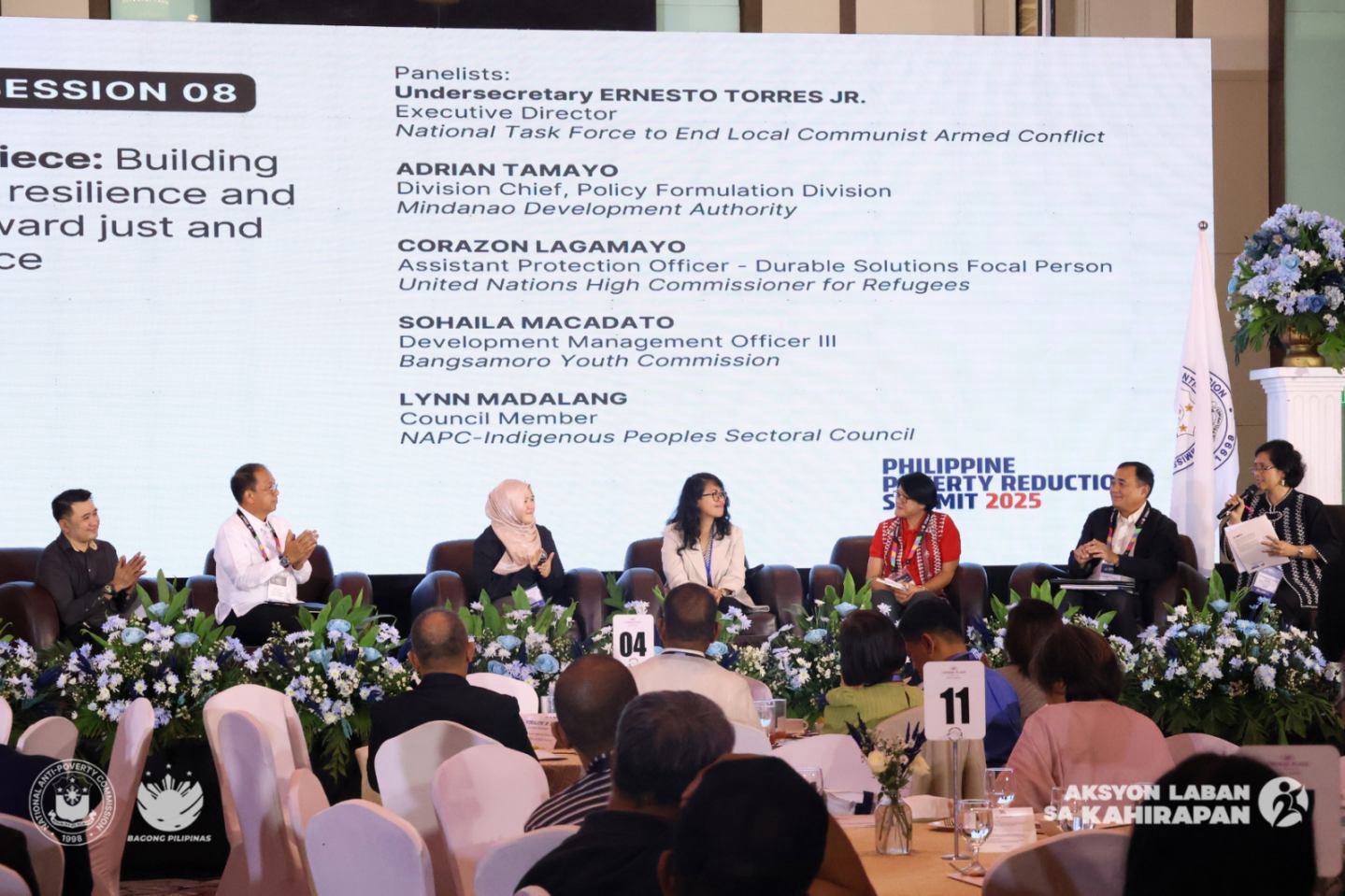
In pursuit of President Ferdinand Marcos Jr.’s goal to lower the poverty incidence in the Philippines to a single-digit by 2028, the National Anti-Poverty Commission (NAPC) held the Philippine Poverty Summit 2025 (PPRS25) on June 30-July 1, focusing on the country’s poverty eradication drive on the five fundamental rights of the poor.
The two-day PPRS25 brought together multi-stakeholders involving 27 NAPC member national government agencies (NGAs), 14 NAPC Basic Sectoral Councils, the 4 Leagues of local government, private sector, local government units and development partners, putting the five fundamental rights of the poor, namely: right to adequate food, right to decent work, right to relevant and quality education, right to adequate housing, and right to the highest attainable standard of health, at the forefront of the country’s poverty reduction efforts.
“Our gathering today is historic and timely. As the National Anti-Poverty Commission celebrates its 27th Founding Anniversary and timely [with the] ongoing transition of the Congress and Local Government Units, where we can seek opportunities to advance the agenda and mainstream in the national and local budget and plans, the improved and focused poverty reduction programs.” NAPC Secretary Lope Santos III underscored in his opening message.

NAPC Vice Chairperson for the Government Sector (OVCGS), South Cotabato Gov. Reynaldo Tamayo Jr., urged for the convergence of the poverty reduction programs, projects, and services to priority sectors, while acting Vice Chairperson for the Basic Sectors Paul Paraguya advocated to make the poor as part of the solution.
Meanwhile, the PPRS25 featured plenary sessions discussing the Philippine Development Plan 2023-2028, the Community-Based Monitoring System, social protection system, the government’s fund for anti-poverty programs, local poverty reduction efforts, private sector partnerships for development, minimizing vulnerabilities to disasters and climate change, just and lasting peace, basic sector participation in poverty reduction, and modernizing the PH public transportation system.

Breakout sessions were also held to tackle critical issues such as food availability and food accessibility; land and asset reform; the Walang Gutom 2027: Philippine Food Stamp Program; empowering the formal labor sector; protecting the overseas filipino workers; informal economy; role of the early childhood and basic education in addressing learning poverty; the Integrated Disaster Shelter Assistance Program; universal healthcare; Philippine Plan of Action for Nutrition; curbing teenage pregnancies in the Philippines; and the government’s mental health programs.
In closing, NAPC Undersecretary Esnaen Catong encouraged the participants to actively participate in the formulation of the local poverty reduction action plans.
The summit marked a milestone in NAPC’s 27th anniversary and its efforts to promote a whole-of-nation approach to poverty alleviation through convergence and inclusive dialogue toward a single-digit Philippine poverty incidence by 2028. (PR)
